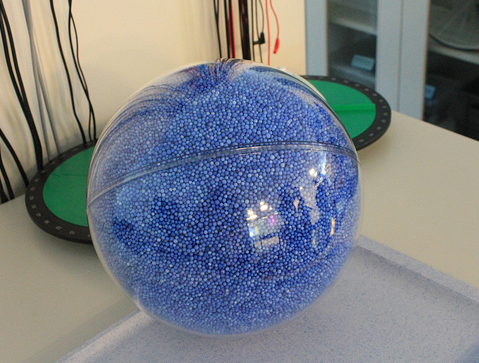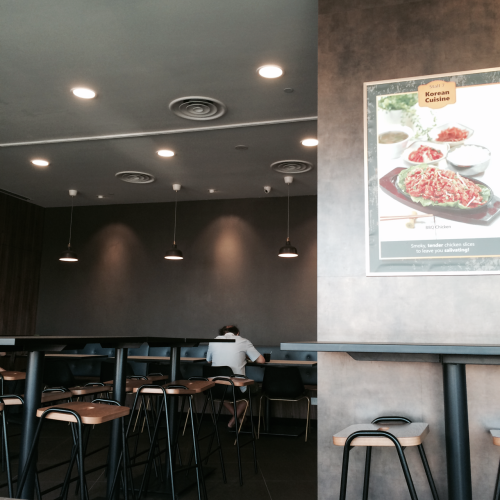Theidlerhour - Bricolage Brain


More Posts from Theidlerhour and Others
Ways I Am Like the Standard Model
Clearly flawed, but with no obvious path to improvement
Can go from a top to a bottom under the right circumstances
I too have a problem with hierarchy
Influenced by Richard Feynman
Too weird to be widely understood
If you froze my body and shattered it down the middle that would arguably be symmetry breaking
Lots of self-coupling
Many of my interactions are weak
Incompatible with gravity (I fell out of bed the other day)
Will break down under extreme conditions
All of my friends describe me as a gauge quantum field theory containing the internal symmetries of the unitary product group SU(3) × SU(2) × U(1)

This is a model of how many Earth’s can fit inside the sun.
Something’s not right about what I’m doing but I’m still doing it—living in the worst parts, ruining myself. My inner life is a sheet of black glass. If I fell through the floor I would keep falling. The enormity of my desire disgusts me.
Richard Siken, “Birds Hover the Trampled Field” (via weltenwellen)






“In this presidential election season, one thing is certain: candidates will rarely — if ever — be asked what they would do to keep this nation at the forefront of science and innovation.
The truth is in the numbers. In the 1960s, the United States devoted nearly 17% of discretionary spending to research and development, reaping decades of economic growth from this sustained investment. By 2008, the figure had fallen into the single digits. This occurs at a time when the private sector has cut back on its research investment and other nations have made significant gains in their own research capabilities. China, for example, is projected to outspend the United States in research within the next decade. East Asia as a whole already does.”
— Janet Napolitano, Why more scientists are needed in the public square.
Once you start thinking of ‘poet’ as identity, once you start thinking that being a poet is just like being anything else that you are, as being something else that you were born, then you can go about doing the things that poets do, and you can go about that more comfortably. Or at least I think so. Or at least it gives you a rationale for why you’re doing what poets do. Like, ‘Why are you still in the dark, trying to read, at two o’clock in the morning?’ ‘Oh, because I’m a poet.’ ‘Why are you pulling your car over to write a line down and you’re already late to where you’re going?’ ‘Because I’m a poet.’
Jericho Brown, interviewed by Elisa Gonzalez for Washington Square Review (via bostonpoetryslam)
Our universe is in many respects sublime. It prompts wonder but can be daunting — even frightening — in its complexity. Nonetheless, the components fit together in marvelous ways. Art, science, and religion all aim to channel people’s curiosity and enlighten us by pushing the frontiers of our understanding. They promise, in their different ways, to help transcend the narrow confines of individual experience and allow us to enter into — and comprehend — the realm of the sublime.
Cosmologist and particle physicist Lisa Randall on the sublime and the essential differences in how art, science, and religion make sense of the universe – wonderfully mind-expanding read. (via explore-blog)
I know we can’t build anything just by sitting in the dark together, but I am so fond of you it sounds like something a person would lie about.
Anna Meister, “Not Yr Cornfield,” published in Moonsick Magazine (via bostonpoetryslam)
We can say that life itself is the axiom of the empty set. It begins in zero and ends in zero. We know that both states exist, but we will not be conscious of either experience: they are states that are necessary parts of life, even as they cannot be experienced as life. We assume the concept of nothingness, but we cannot prove it. But it must exist.
Hanya Yanagihara, A Little Life (via shrinemaidens)
-
 smollbetawooper liked this · 8 years ago
smollbetawooper liked this · 8 years ago -
 itisreallyhappening liked this · 9 years ago
itisreallyhappening liked this · 9 years ago -
 moosestrangler reblogged this · 9 years ago
moosestrangler reblogged this · 9 years ago -
 saoriaiko reblogged this · 9 years ago
saoriaiko reblogged this · 9 years ago -
 lavendermoo-n reblogged this · 9 years ago
lavendermoo-n reblogged this · 9 years ago -
 lyrechords reblogged this · 9 years ago
lyrechords reblogged this · 9 years ago -
 witchever reblogged this · 9 years ago
witchever reblogged this · 9 years ago -
 woodwhittling liked this · 9 years ago
woodwhittling liked this · 9 years ago -
 lisanabela reblogged this · 9 years ago
lisanabela reblogged this · 9 years ago -
 lisanabela liked this · 9 years ago
lisanabela liked this · 9 years ago -
 demdike-stare liked this · 9 years ago
demdike-stare liked this · 9 years ago -
 joconostle reblogged this · 9 years ago
joconostle reblogged this · 9 years ago -
 dearheart22 liked this · 9 years ago
dearheart22 liked this · 9 years ago -
 drown-myself-tonight liked this · 9 years ago
drown-myself-tonight liked this · 9 years ago -
 theidlerhour reblogged this · 9 years ago
theidlerhour reblogged this · 9 years ago -
 plorf2 liked this · 9 years ago
plorf2 liked this · 9 years ago -
 jakeliveslife-blog reblogged this · 9 years ago
jakeliveslife-blog reblogged this · 9 years ago -
 tqm-k reblogged this · 9 years ago
tqm-k reblogged this · 9 years ago -
 sothisusernamewasenttaken liked this · 9 years ago
sothisusernamewasenttaken liked this · 9 years ago -
 spasmgasm reblogged this · 9 years ago
spasmgasm reblogged this · 9 years ago -
 pavor reblogged this · 9 years ago
pavor reblogged this · 9 years ago -
 leachee liked this · 9 years ago
leachee liked this · 9 years ago -
 echoofcosmicserenity liked this · 9 years ago
echoofcosmicserenity liked this · 9 years ago -
 teamthreestarbitch reblogged this · 9 years ago
teamthreestarbitch reblogged this · 9 years ago -
 poroprincess69 liked this · 9 years ago
poroprincess69 liked this · 9 years ago -
 javkie liked this · 9 years ago
javkie liked this · 9 years ago -
 glitternoodle liked this · 9 years ago
glitternoodle liked this · 9 years ago -
 9secretsigns reblogged this · 9 years ago
9secretsigns reblogged this · 9 years ago -
 hereditare liked this · 9 years ago
hereditare liked this · 9 years ago -
 sleepowder reblogged this · 9 years ago
sleepowder reblogged this · 9 years ago -
 flasheh reblogged this · 9 years ago
flasheh reblogged this · 9 years ago -
 flasheh liked this · 9 years ago
flasheh liked this · 9 years ago -
 germainetrain reblogged this · 9 years ago
germainetrain reblogged this · 9 years ago -
 seiipoots reblogged this · 9 years ago
seiipoots reblogged this · 9 years ago -
 germainetrain liked this · 9 years ago
germainetrain liked this · 9 years ago -
 ragdollxarchives reblogged this · 9 years ago
ragdollxarchives reblogged this · 9 years ago -
 assmanhathole liked this · 9 years ago
assmanhathole liked this · 9 years ago -
 potatosonny liked this · 9 years ago
potatosonny liked this · 9 years ago
"To awaken my spirit through hard work and dedicate my life to knowledge... What do you seek?"
229 posts




